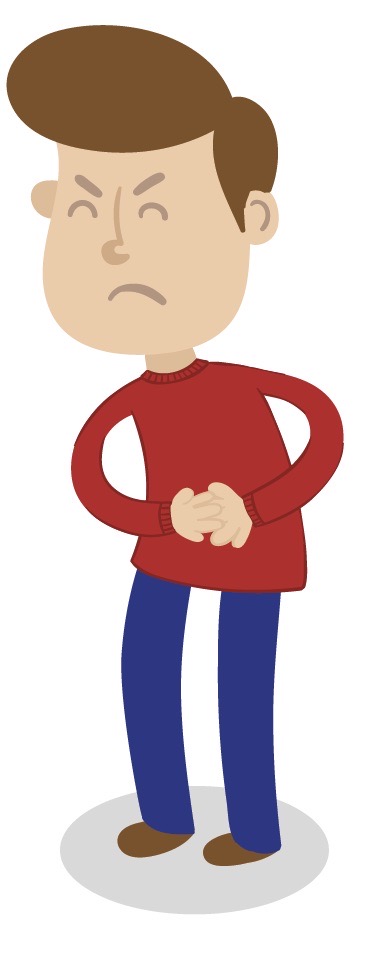
Pain is a common problem among patients with IBD, whether it’s related to the disease itself (e.g., abdominal pain) or to medical tests and treatments. Pain is no fun for kids or their families, and can often cause more fear and distress than the actual disease itself. Fortunately, there are lots of things that children
and their parents can do to help manage any discomfort associated with IBD. When it comes to pain management, we often refer to the three P’s:
- Physical
- Psychological
- Pharmacological
We’ll give you some examples of each:
Physical
Physical strategies include positioning, massage and exercising. Yoga is one example of a physical strategy that can help with IBD-associated pain.
Psychological
Psychological strategies include techniques such as relaxation, which can be achieved by taking deep breaths, using your imagination to take you to a peaceful place or gradually tensing and relaxing muscles. Other effective psychological strategies for pain management include distraction (i.e., taking your mind off things by thinking about or doing something more pleasant) and positive self-talk (i.e., turning negative thoughts into positive ones by repeating statements like: “I can deal with this pain”). Mindfulness is another way to manage discomfort. This involves accepting the feelings, thoughts and sensations that are occurring in the moment, and not getting upset about them.
Pharmacological
 Pharmacological strategies are those that involve medication. If your pain is not well controlled, you should talk to your doctor about whether there are medications that can help you. If you experience a lot of pain from needles or procedures, for example, you might find it helpful to use
Pharmacological strategies are those that involve medication. If your pain is not well controlled, you should talk to your doctor about whether there are medications that can help you. If you experience a lot of pain from needles or procedures, for example, you might find it helpful to use
a topical anesthetic cream before the procedure to help numb the area. Parents play an important role in helping children with IBD to manage their pain. Parents can help make sure their child’s pain is assessed regularly and that poorly controlled pain is followed up. Pain is not just a part of life with IBD. There is almost always something more that can be done to help children with IBD feel more comfortable.
The Centre for Pediatric Pain Research is dedicated to helping make sure that evidence about children’s pain gets to families who need and can use it. Check out: #itdoesnthavetohurt campaign and www.itdoesnthavetohurt.ca to learn more.
You will also find helpful videos, including one for parents that gives easy pain-management tips for shots and needles.
To read more articles, visit the latest edition of our magazine, You, Me and IBD.
Contributor
This article was written by Dr. Christine Chambers. Dr Chambers is a clinical psychologist and professor in the Department of Pediatrics and Psychology and Neuroscience at Dalhousie University in Halifax, Nova Scotia. She is based in the Centre for Pediatric Pain Research at IWK Health Centre. She is interested in helping children with chronic illness and pain. Follow her on Twitter at @drchambers

